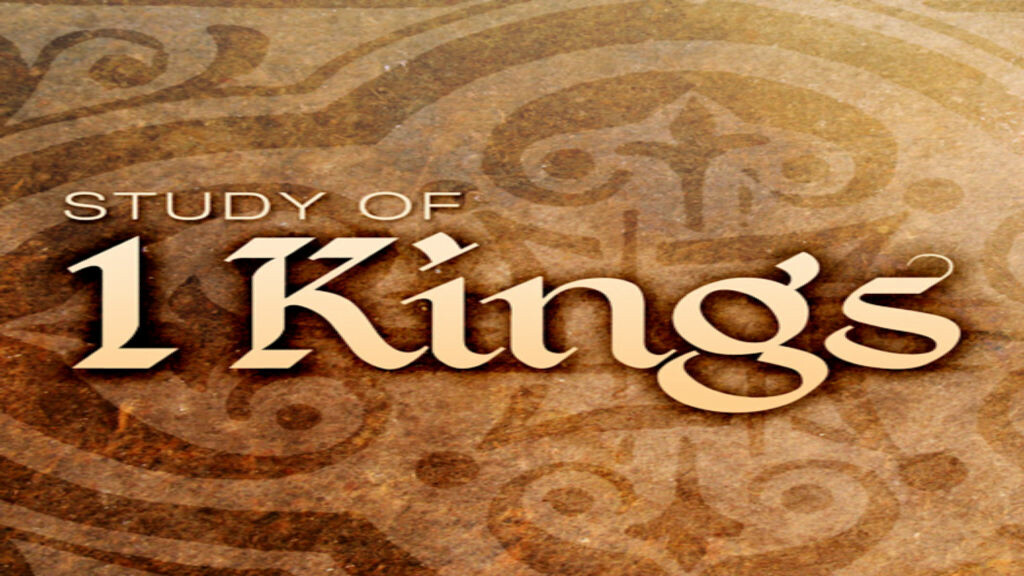1 Kings Bible Study | Chapter 17 | Mike Prah

Sep 1, 2021 | by Mike Prah
THE RAISING OF THE BOY: Tragedy, Triumph, Testimony - 1 Kings 17: 17-24
SUMMARY
A widow's son falls ill and dies. Elijah prays to God and He is brought back to life. This study coves how a believer can move from tragedy, to triumph and testimony.
INTRODUCTION
The widow’s son falls gravely ill and dies; she blames Elijah for causing this tragedy so as to bring her sin before (17:17-18). Elijah takes the child from his mother (17:19) and pleads with God for the boy’s life (17:19). Through God’s enablement, the boy is brought back to life (17:20-22). Elijah takes the boy back to his mother and announces his recovery (17:23). The mother praises Elijah and acknowledges his prophetic status (17:24).
1. THE TRAGEDY (17:17-21)
A. THE BOY’S SICKNESS (I Kings 17:17)
The widow’s son becomes sick and dies. Tragedy does not always mean the end for the believer. God can bring beauty out of ashes.
“God turns darkness to light. He uncovers mysteries out of the darkness; and brings black gloom and the shadow of death into light.” Job 12:22 (CEV+AMP)
“When you go through deep waters and great trouble, I will be with you. When you go through rivers of difficulty, you will not drown! When you walk through the fire of oppression, you will not be burned up — the flames will not consume you!” Isaiah 43:2 (LB)
B. THE MOTHER’S SORROW (I Kings 17:18)
In great anguish, the widow asks Elijah If he has come to punish her for some past sin. The mother believes that some forgotten sin on her part may have occasioned her son’s death (see Mark 1:23-24; Luke 5:8)
“For the kind of sorrow God wants us to experience leads us away from sin and results in salvation. There’s no regret for that kind of sorrow. But worldly sorrow, which lacks repentance, results in spiritual death.” 2 Corinthians 7:10 (NLT)
- The Bible is clear that abundantly clear that:
I. Sin has consequences
“It’s your sins that have cut you off from God. Because of your sins, he has turned away and will not listen anymore.” Isaiah 59:2 (NLT)
“Do not be deceived: God cannot be mocked. A man reaps what he sows. The one who sows to please his sinful nature, from that nature will reap destruction” Galatians 6:7-8 (ESV).
II. We Must Receive God’s Gracious Love that Atones For Our sins
5 Expressions of God’s Nature (Exodus 34:5-7, ESV)
- A God merciful and gracious
- slow to anger,
- abounding in steadfast love and faithfulness,
- keeping steadfast love for thousands,
- forgiving wickedness, rebellion, and sin.
“My dear children, I write this to you so that you will not sin. But if anybody does sin, we have an advocate with the Father—Jesus Christ, the Righteous One. He is the atoning sacrifice for our sins, and not only for ours but also for the sins of the whole world.” 1 John 2:1-2 (NIV)
III. God Forgives Guilty People Who Are Repentant. We Must Ask and Receive God's Forgiveness
“If we confess our sins to God, He can always be trusted to forgive us and take our sins away.” 1 John 1:9 (CEV)
C. THE PROPHET’S SUPPLICATION (1 Kings 17:19-21)
Elijah stretches himself upon the boy’s body and asks the Lord to bring him from the dead. (Similar tactics: Elisha and the Shunammite’s son (2 Kings 4:34); Paul and Eutychus (Acts 20:10; cf. Acts 9:36-43)
- Supplication is a call for help from God. The term bears a spirit of reverence and devotion with it, a solemn prayer to God.
“Do not be anxious about anything, but in everything by prayer and supplication with thanksgiving let your requests be made known to God. And the peace of God, which surpasses all understanding, will guard your hearts and your minds in Christ Jesus.” Philippians 4:6-7 (ESV)
- We must pray in faith, humbly believing that God will answer prayer.
“ Then he [the prophet] stretched himself out on the boy three times and cried out to the Lord, “Lord my God, let this boy’s life return to him!” 1 Kings 17:21 (NIV)
2. THE TRIUMPH (1 Kings 17:22-23)
The Lord grants Elijah’s request, and the boy is raised from the dead.
- Our God is a prayer-answering God.
3. THE TESTIMONY (1 Kings 17:24)
- The mother of the healed son's testimony to Elijah expresses more than admiration for the prophet. She testifies that truth is found in God’s given words.
“Then the woman said to Elijah, “Now I know that you are a man of God and that the word of the Lord from your mouth is the truth.” I kings 17:24
- We should acknowledge and encourage people for their faithfulness to their calling. But God is the healer and restorer, and all glory must go to God.
“I will praise you to all my brothers; I will stand up before the congregation and testify of the wonderful things you have done.” Psalm 22:22 (LB)
“Come and hear, all you who fear God; let me tell you what He has done for me” Psalm 66:16 (NIV)
“It is my pleasure to tell you about the miraculous signs and wonders that the Most High God has performed for me.” Daniel 4:2 (NIV) “
After the stone had been rolled aside, Jesus looked up toward heaven and prayed, “Father, I thank you for answering my prayer. I know that you always answer my prayers. But I said this, so that the people here would believe that you sent” John 11:41-42 (CEV)
I Kings 17:17- 24 (New International Version)
17 Sometime later, the son of the woman who owned the house became ill. He grew worse and worse, and finally stopped breathing. 18 She said to Elijah, “What do you have against me, man of God? Did you come to remind me of my sin and kill my son?”
19 “Give me your son,” Elijah replied. He took him from her arms, carried him to the upper room where he was staying, and laid him on his bed. 20 Then he cried out to the Lord, “Lord my God, have you brought tragedy even on this widow I am staying with, by causing her son to die?” 21 Then he stretched himself out on the boy three times and cried out to the Lord, “Lord my God, let this boy’s life return to him!”
22 The Lord heard Elijah’s cry, and the boy’s life returned to him, and he lived. 23 Elijah picked up the child and carried him down from the room into the house. He gave him to his mother and said, “Look, your son is alive!”
24 Then the woman said to Elijah, “Now I know that you are a man of God and that the word of the Lord from your mouth is the truth.”
DIGGING DEEPER
SECTION 1: PERSONALIZING THE MESSAGE
(a). What insight from the message left the biggest impression on you? Why?
(b). What did you hear that encouraged or reassured you?
(c). What did you hear that challenged or convicted you?
(d). How did the message increase your appreciation for God the Father, Jesus Christ, or the Holy Spirit?
(e). From your personal experience, how can you illustrate a point from the message?
(f). Who can share the positive results of heeding the message or the painful consequences of disregarding its truth?
SECTION 2: APPLICATION OF THE MESSAGE
(a). What personal application of the message has the Lord shown you? How do you feel about following through with it?
(b). How should the message we heard affect or change our prayers?
(c). If we diligently apply the message, what effect would it have on personal lives and our daily walk with Christ?
(d). What would you say to share this helpful information to benefit someone who did not hear this message?
